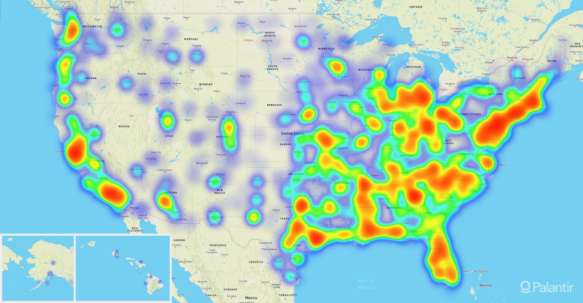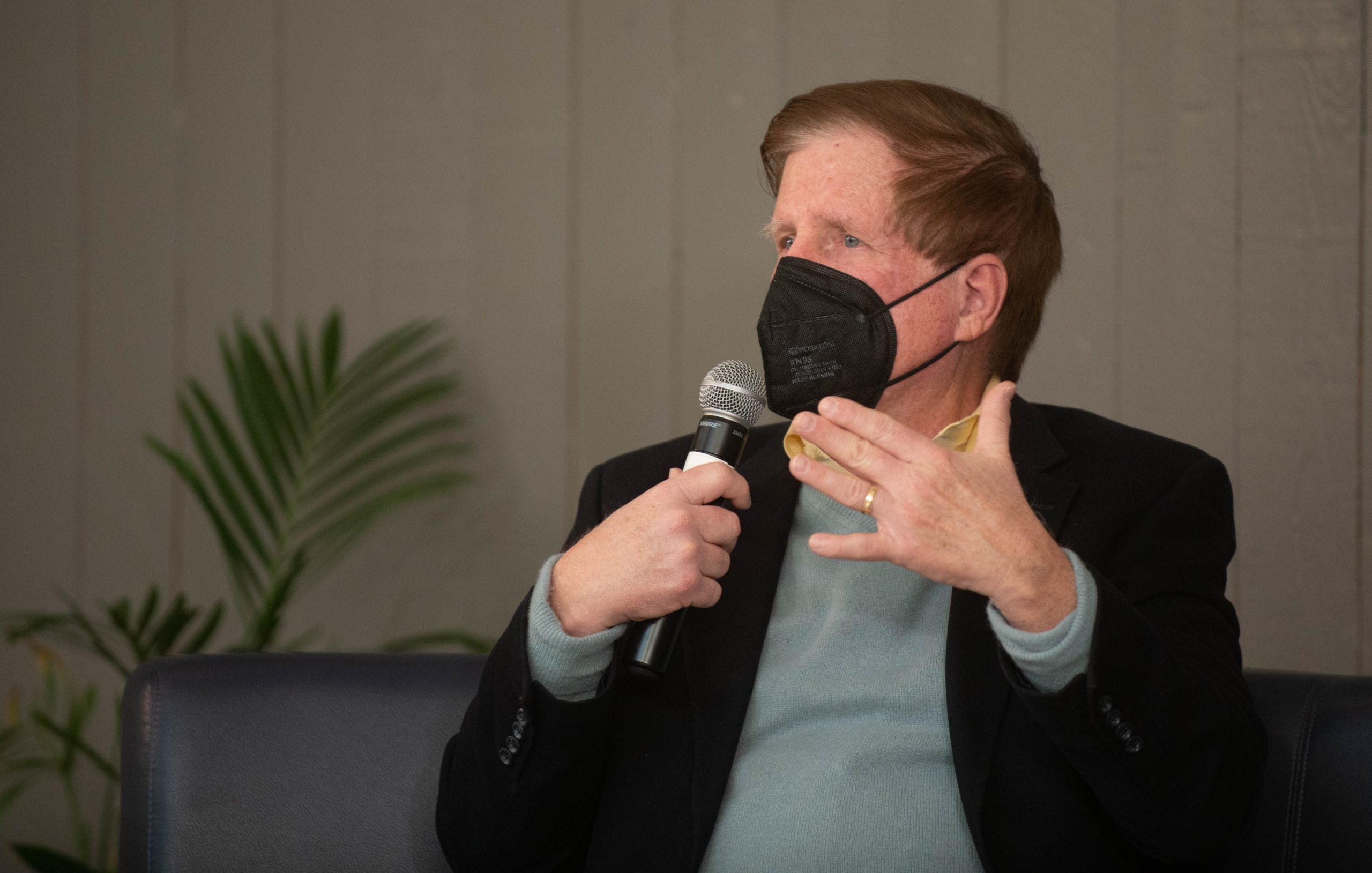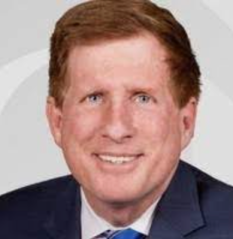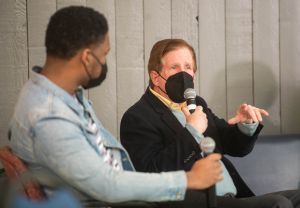Editors note: This is a cumulation of multimedia stories reflecting on the global and local issue of human trafficking from a student led event held at Cabrini University.
Panel sheds light on human trafficking, another invisible pandemic ‘in our backyards’
By: Cierra Southard, Max Silverman, Victoria Giordano
This isn’t a hot button issue, rather a heartbreaking one that requires global attention.
Many global events get widespread attention by the media. However, human trafficking is not one of them. Human trafficking has permeated the underbelly of society, always beneath the surface.
“It’s in your backyard, regardless of where your backyard is,” Abbie Newman, CEO of Mission Kids Child Advocacy Center, said, while adding that regional reports of the crime are rising and many victims are being sold and exploited by family members.
Human trafficking is a worldwide, multi-billion dollar industry in which vulnerable people are manipulated by strangers or family, kidnapped, taken hostage and sold for forced labor, sex work or organ removal. The most likely to be targeted and sold into this inhuman market include women, children, members of the LGBTQ+ community, former convicts, those who struggle with low self-esteem and teenage runaways. Read more
“There is no other side to this issue, this is as close to evil personified as anything you could ever imagine.” – Walt Hunter, Retired Eyewitness News reporter, said.
Cabrini’s backyard is a hotspot for human trafficking
By: Victoria Emmitt

Cabrini’s backyard offers a perfect storm for human traffickers, and authorities explain why:
The intersection of multiple highways offers easy access to hotels. It neighbors one of the largest malls in the country. Police say the lines blur when it comes to jurisdiction, making it tough to hunt down predators and decide which police department will lead the case.
The exploitation of victims from human trafficking is happening at a national scale, but closer to home, in King of Prussia, it is becoming a major hotspot for human trafficking. One retired Montgomery County police officer, who did not want to be named, said:
“The transportation hub that the turnpike and others are, amazingly, people do not realize the amount of contraband and people that are run through this section of the country. It is absolutely about transportation and the ability to move people.”
“Complex trauma is what is happening to these victims, they are being raped or molested over and over again, six, seven, 10 times a day. That is more than just trauma,” Carla Clanagan, program director at Worthwhile Wear, said. Read more.
What we can do: Spotting the signs of Human Trafficking
By: Mark Finley
A frequent visitor arrived once again in the emergency room.
This time a nurse spotted a bar code like an item at a grocery store. Immediately, she knew the frightening reality behind what some may perceive to be an innocuous tattoo. But it wasn’t; it was among signs that can be tied to victims of human trafficking.
This realistic scenario unfolded in a Pennsylvania hospital, but it underscores the importance of knowing the signs of human trafficking crimes, according to Abbie Newman, CEO of Mission Kids, a child advocacy and anti-trafficking organization in Montgomery County.
Human trafficking is a type of human rights abuse where people profit from the exploitation of others mainly through the use of force, fraud or coercion to manipulate victims into engaging in sex acts or labor/services. Read more.
“Everyone can help by learning the types of trafficking and paying attention to the people around us,” The National Human Trafficking Hotline said.
CBS reporter Walt Hunter details his 40-plus years of fighting sex trafficking

Walter Hunter remembers it like it was yesterday.
As an investigative reporter, Hunter covered many breaking stories on drug abuse in Philadelphia in the 1980’s. But this one involved a drug-addiction single mother who locked her daughter in a closet while she was out buying drugs.

Walt Hunter. Photo from Linkedin.
The young girl, trapped in the closet, starved to death, he said.
Innocent victims of the drug world like the young girl never left his mind. In covering these tragic drug abuse stories, Hunter began to shed light on another epidemic that still rages on today, both child abuse and sex trafficking. The story of the child’s death took on emotional toll on Hunter and was one of the main factors that led to his second career in fighting sex trafficking.
“Child abuse/sex trafficking is one of those dirty issues that nobody wants to hear about,” Hunter said during a panel held at Cabrini University’s Grace Hall Feb. 1. Hunter said that he believes that the topic’s disturbing nature often gets pushed aside in mainstream news coverage.
Hunter said he was lucky enough to have bosses who let him report on sensitive subjects like child abuse, which allowed him to shed light on this problem throughout his 40-plus year career.
Hunter’s primary focus throughout his career was on the various systems in place to protect children in the Montgomery County area. However, like reporters often find, the system was broken.
The procedures in place had many flaws, as there was not even records kept of children who reported a sexual abuse case. Not to mention that so much information would get lost in translation, as these kids would be dragged all over the county to three/four different places in order to formally file a report.
This story took on emotional toll on Hunter, and was one of the main factors that led to his second career in fighting sex trafficking.
“Child abuse/sex trafficking is one of those dirty issues that nobody wants to hear about,” Hunter said, as he believes that because of its disturbing nature, it often gets pushed to the side in mainstream news coverage.
Hunter was lucky enough to have bosses who let him report on sensitive subjects like child abuse, which allowed him to shed light on this problem throughout his 40 plus year career.
Hunter’s primary focus throughout his career was on the various systems in place to protect children in the Montgomery County area. However, like reporters often find, the system was broken.
The procedures in place had many flaws, as there was not even records kept of children who reported a sexual abuse case. Not to mention that so much information would get lost in translation, as these kids would be dragged all over the county to three/four different places in order to formally file a report.
“This process was flawed, and would often cause more trauma for these poor kids,” Hunter said, as a procedure that in theory should be painless, would often make an awful situation more uncomfortable for the victims.
It was clear to Walt that something had to change, and Montgomery County District Attorney Risa Ferman agreed.
In 2009, Ferman founded Mission Kids, a non profit advocacy center that was created to achieve justice for children who were victims of child abuse.
This center was a centralized place to process victims of abuse, while offering services such as housing, medical, mental health treatment, forensic interviews, family advocacy, and assault prevention/training.

Mission Kids. Photo from Mission Kids Advocacy Center.
The founding of Mission Kids was music to Hunter’s ears, as this revolutionary center put all support, and services victims needed under one roof.
Mission Kids would not only provide the necessary mental health support/counseling needed to abuse victims, but also the legal services required in order to convict their abusers.
Hunter was so enthralled by the services of Mission Kids that when he retired from CBS in 2016, he joined the companies board, and currently serves as their main spokesperson.
Mission Kids has given Hunter an outlet to continue his 40 plus year fight against child abuse, and for that he is extremely grateful.
In addition to the fight in the courts, Hunter believes that boots on the ground journalism is crucial to combating this problem.
Hunter cited his former colleague in Miami Herald reporter Julie K. Brown, as she was the driving force in reporting the Jeffrey Epstein sex trafficking scandal.
In Brown’s case, this was a story that took nearly 20 years of reporting, and after numerous times being shut down, Brown was finally able to expose Epstein.
Brown stuck with the story, despite the deck being stacked against her due to Epstein’s wealth, and fame.
“Cover the trial, cover the prosecution, and stick with the story,” Hunter said, as he believes that boots on the ground journalism is the key to exposing child abuse.
If we all do our part in combating this problem, Hunter believes, “The world would be a better place”

Eyewitness News Reporter Walt Hunter speaks to Lifestyles Editor Pryce Jamison on human trafficking.
-Photo by Erica Zebrowski
LOQUITUR MEDIA HOSTS PANEL TO ADDRESS HIDDEN PANDEMIC
Media students at Cabrini University hosted a live, in-person interview shedding light on the toll of human trafficking, which is increasing in prevalence in the region and the country.
WHO: Cabrini Com journalists interviewed a panel of experts on the topic of human trafficking – Abbie Newman, TV Investigative reporter Walt Hunter and Victims’ Advocate Carla Clanagan. They discussed the hidden crisis, warning signs and solutions.
Below are some behind the scenes captures of The Loquitur’s multimedia production & storytelling team.
[photoblocks id=12]
